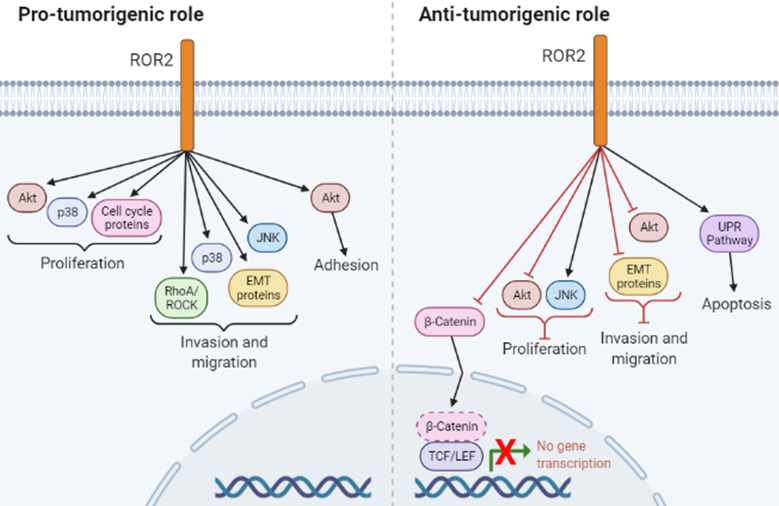The Wnt pathway plays an essential role in the initiation and progression of various types of cancer. ROR1 and ROR2 are Wnt receptors that are critical for β-catenin-independent (non-canonical) pathways and have been linked to processes driving tumor development and progression, such as cell proliferation, survival, invasion, and therapy resistance. Both receptors have garnered interest as potential therapeutic targets since they are largely absent in adult tissue, are overexpressed in several cancers, and, as members of the receptor tyrosine kinase family, are easier to target than all other components of the pathway. Unlike ROR1 which always promotes tumorigenesis, ROR2 has a very complex role in cancer acting either to promote or inhibit tumor progression in different tumor types. In the present article, we summarize the findings on ROR2 expression in cancer patients and its impact on clinical outcome. Further, we review the biological processes and signaling pathways regulated by ROR2 that explain its dual role in cancer. Finally, we describe the ongoing strategies to target ROR2 in cancer.

